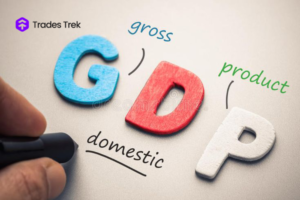Market volatility can result in significant gains or losses
What is Market Volatility?
Market volatility refers to the frequency and scale at which stock prices or other financial assets fluctuate within a given period. This fluctuation can either result in significant gains or losses, making it a critical factor to consider for investors and traders alike. Volatility can stem from events like economic reports, geopolitical changes, or even company-specific news.
Effects on Stocks?
Volatility in the stock market reflects how uncertain or stable asset prices are. When market volatility is high, stock prices can swing drastically, offering opportunities and risks. For example, during Nigeria’s election cycles or when oil prices change, investors may see wild shifts in the stock market. These swings could lead to sharp gains for some stocks and steep losses for others. With a stock trading simulator, you can learn how to react to volatile markets without real financial risk.
How to Measure Market Volatility?
One of the most common ways to measure market volatility is through the volatility index (VIX). This tool tracks the expected movement in the market over a specific period. When the VIX rises, it indicates increased market uncertainty, while a drop suggests more stable market conditions.
Traders can also assess volatility by checking stock price changes or the standard deviation of asset returns. In the Nigerian stock market, monitoring key sectors such as banking, energy, and agriculture will provide better insights into stock market behaviour.
By using a stock trading simulator, you can practice measuring market volatility without risking actual money. This will help you develop the skills needed to identify trends and make informed trading decisions.
How to Manage Risk During Market Volatility?
Managing risk during volatile markets is essential for any investor or trader. Here are some strategies to help:
- Diversify Your Portfolio: Spread your investments across multiple sectors to minimize exposure to any single stock or industry.
- Use Stop-Loss Orders: This helps you set a limit to potential losses by automatically selling stocks if prices drop beyond a certain point.
- Stick to Long-Term Goals: Volatile markets are often short-term events. Staying focused on your long-term investment goals will help you avoid rash decisions.
- Practice Risk Management in Simulators: Before committing to real capital, use a stock trading simulator to develop strategies for handling volatile markets confidently.
For Nigerian investors, it is crucial to keep an eye on both local economic events and global trends since factors like exchange rates or crude oil prices can influence stock market behavior significantly.
Conclusion
Understanding market volatility is key to thriving in the stock market, especially for Nigerian traders. It’s not just about identifying risks but also finding profitable opportunities hidden within the market’s ups and downs. Tools like stock trading simulators offer a risk-free environment to develop trading strategies and manage risks efficiently. With the right knowledge and preparation, you can confidently trade in both calm and volatile markets.
By learning how to measure and manage market volatility effectively, you’ll be better equipped to grow your trading skills and make smarter investment decisions. Download the Trades Trek stock trading simulator today and start practicing with real-time data!




